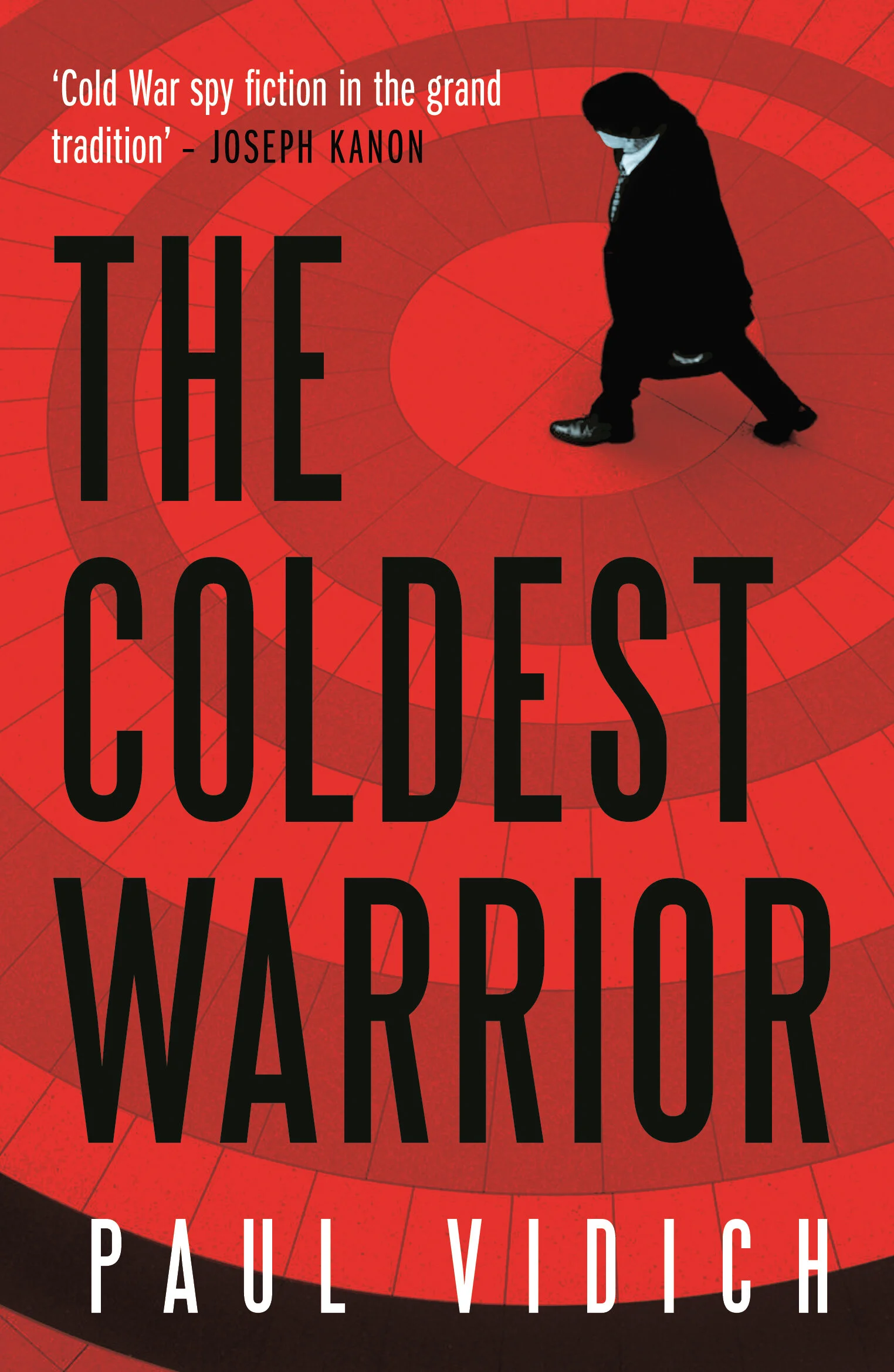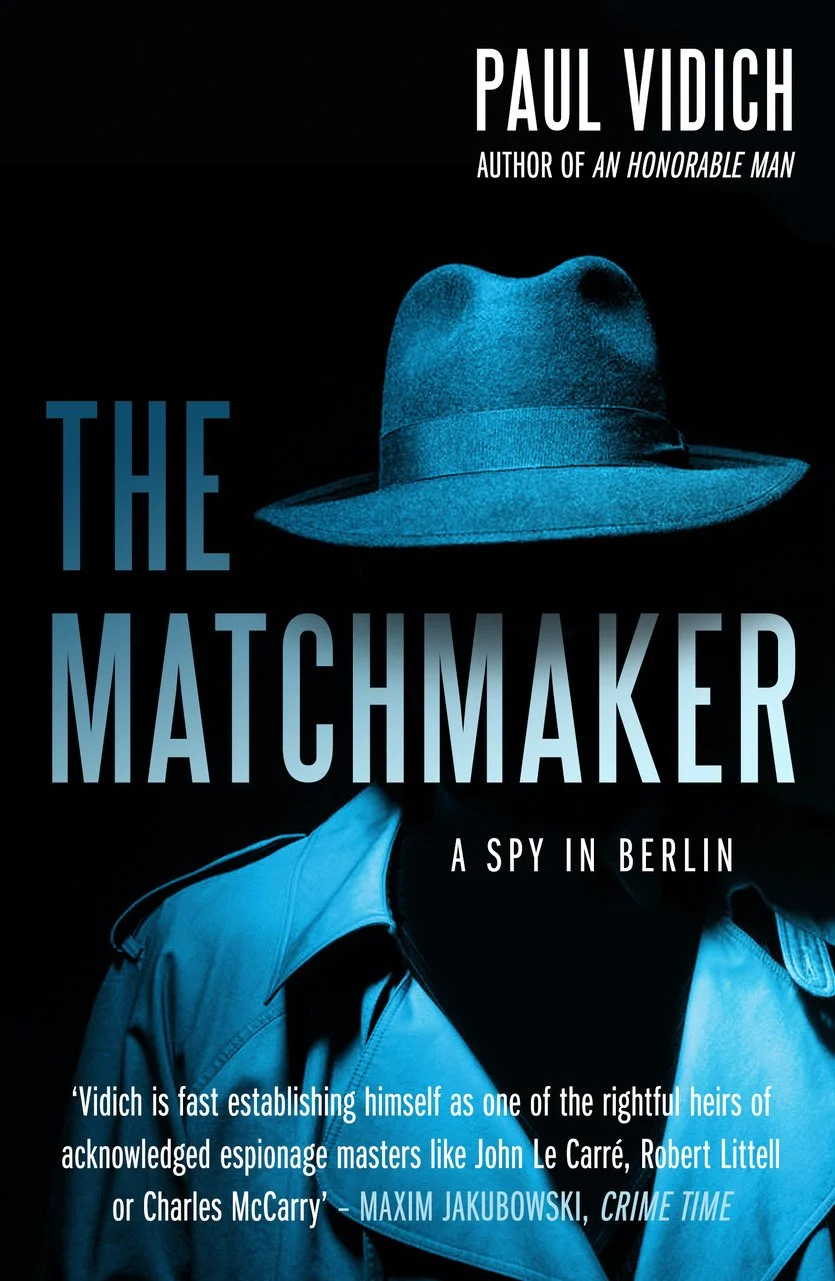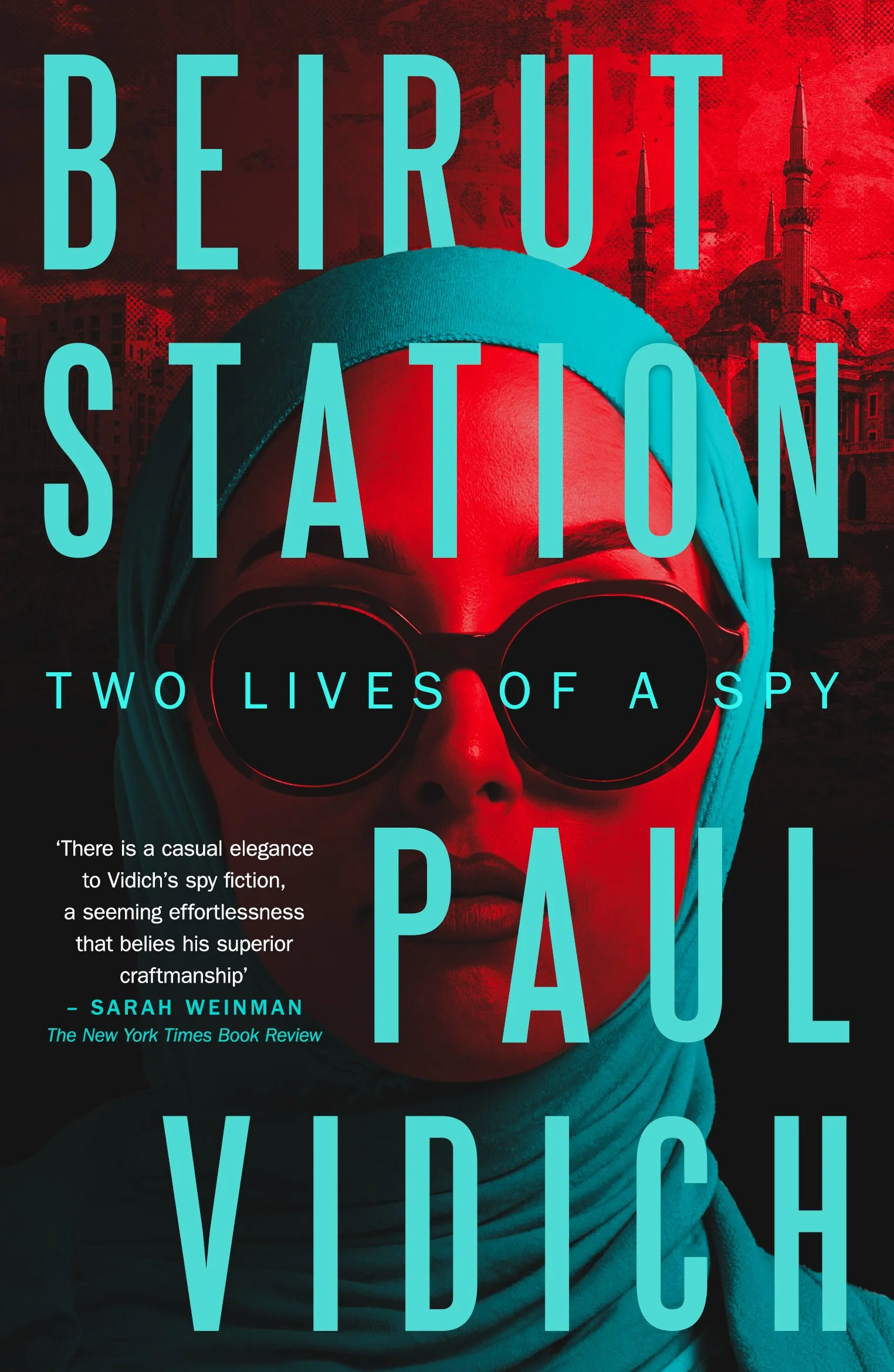The Coldest Warrior By Paul Vidich - Review and Q&A with Paul.
The new novel by acclaimed espionage author Paul Vidich explores the dark side of intelligence, when a CIA officer delves into a cold case from the 1950s-with fatal consequences.
In 1953, Dr. Charles Wilson, a government scientist, died when he 'jumped or fell' from the ninth floor of a Washington hotel. As his wife and children grieve, the details of the incident remain buried for twenty-two years.
With the release of the Rockefeller Commission report on illegal CIA activities in 1975, the Wilson case suddenly becomes news again. Wilson's family and the public are demanding answers, especially as some come to suspect the CIA of foul play, and agents in the CIA, FBI, and White House will do anything to make sure the truth doesn't get out.
Enter agent Jack Gabriel, an old friend of the Wilson family who is instructed by the CIA director to find out what really happened to Wilson. It's Gabriel's last mission before he retires from the agency, and his most perilous. Key witnesses connected to the case die from suspicious causes, and Gabriel realizes that the closer he gets to the truth, the more his entire family is at risk.
Following in the footsteps of spy fiction greats like Graham Green, John Le Carré, and Alan Furst, Paul Vidich presents a tale - based on theunbelievable true story told in Netflix's Wormwood - that doesn't shy away from the true darkness in the shadows of espionage.
Review
⭐️⭐️⭐️⭐️
I have always been interested in this era of history - perhaps more from the USSR side but then I did do a MA in Russian History! However, what really intrigued me about this book was the fact that it was based on true life events and even more so when I found out that it was the authors Uncle that was thrown out of that hotel window. It must have taken great strength to be able to write this book and I applaud them.
The book opens with the incident in question where a scientist is thrown out a hotel window whilst residing in a CIA safe house / room. It then quickly moves to the Senate trial on the events which took place 20 years ago. What follows is an organisation looking to protect itself, a group of people scrambling to pass the buck with only one out of them really wanting to get to the truth.
This is a fast paced novel which keep your attention right to the end! It’s very engaging and the knowledge that this can and did happen in the world makes the narrative all that more realistic. The characters are captivating, especially Gabriel and his daughter.
This is definitely a book I would recommend without question.
Q&A
Paul very kindly agreed to do a Q&A session with me so I could run it alongside the blog tour! So, let’s dive into it.
1) We all have to admit that authors get their stories from real life. Where do you get your inspiration from?
I start with character. For my first two novels, I discovered fascinating characters while researching the CIA. In An Honorable Man, I was intrigued by James Speyer Kronthal, a gay man in 1953 in the CIA who had been turned by the Soviets and lived a triple life – hiding the fact that he was a spy from his friends, hiding the fact that he was a Soviet mole from his colleagues, and hiding his homosexually from everyone. My second novel was based on an American agent, William Morgan, who served Fidel Castro while being paid by the CIA, who later embraced the rebel’s ideals. My latest novel, The Coldest Warrior, is based on the tragedy of my uncle, Frank Olson, a bioweapons Army scientist who died in 1953. When I found these men, I asked myself: Who were they? How did they find themselves in trouble? What was at stake in their lives? Where would the story go?
2) What was your day job before your writing took off and how do you think it has affected the books you create?
I was executive vice president in a large American media company. The CIA is really no different from the sort of large corporation I worked in. Successful business executives, like careers intelligence professionals, toil in a highly competitive environment, work long hours, operate within budgets, make internal alliances to prioritize projects, seek consensus, and are alert to back stabbing. The difference is that corporate executives worry about profit and loss statements while intelligence professionals push government policy with covert operations and invariably suffer the moral hazards of a line of work that sanctions lying, deceit, and murder.
3) Who is your favourite author at present?
John le Carré. A Spy Who Came in From the Cold remains a masterpiece of literary fiction disguised as a spy novel. His recent books are excellent reads.
4) Who is your favourite of all time?
Homer.
5) Is there a genre of books you just can’t stand?
What I can’t stand is a poorly written book. I would always prefer a superbly written mystery to a pretentious literary novel.
6) If you were only allowed to read one book for the rest of your life what would it be?
It would have to be a long book. I expect to live for a while. Wuthering Heights, for its remarkable narrative structure. Moby Dick for its language.
7) How does the ‘location’ i.e geographical area play it’s part when you are writing a book?
Setting is critical. Setting is not just scenery, or descriptive passages about place, although an illustrators’ eyes for a place is a part of setting, but it’s about mood, it’s about the things that draw a character to a place and establishes the novel’s atmosphere and evokes the story’s imaginary world. Setting provides the reader with the yearnings, fears, attractions and possibilities that are available to characters who find themselves in a unique moment in a particular place. My second novel was set in Cuba in 1958, in the final months of the Cuban Revolution when Fidel Castro was battling to overthrow the Bistata, the Cuban dictator. If you’ve seen Coppola’s Godfather II, you’ll probably remember the scenes that were set in Havana in the gambling halls run by the Meyer Lansky character. Those images excite an exotic image in the reader’s imagination and it is the writer’s trick to evoke that world with words.
8) Describe your day when you are writing?
Up at 7 am. Write 7:30 to noon. Errands, help my wife, gym at 6 pm where I read the newspaper on the stationary bike, dinner afterwards, with two glasses of a good white Burgundy, unless I am in the thick of a novel, in which case I don’t drink at all.
9) Can you give us any clues about the book you are working on?!
My fourth novel is set in Moscow in 1985. Spies on Red Square. My fifth book, which I am writing now, takes places in the divided city of Berlin in 1989, just at the Wall falls.
10) How important do you think the blogging community and social media in the book industry?
Brilliantly important. It is one way in which the many voices of the democratic Internet spread the word about a book. Curated newspaper reviewers approach a book from on high, but bloggers surround a book with affecting, and sometimes deeply personal, appreciation – or rejection.
And finally a bonus question! Okay what would rather have as a method to kill off a character - a hundred penguins descending on a person or one solitary shaving nick which led to an infection and death? Why did you choose what you did?
A solitary shaving nick. Lethal, most likely undetectable, and almost certainly a poison or virus. Death by penguin would be suitable in a Marx Brothers movie, but not in a spy novel.









